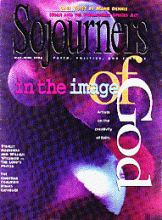Pat Buchanan spouts friend-of-labor rhetoric. Other politicians mouth "let's get America moving again" platitudes, while taking in corporate campaign contributions with one hand and passing out corporate welfare with the other.
Working women and men need more than political bombast. The union movement is showing a renewed commitment to grassroots organizing and signs of repentance for past excesses. Is there a role for the church in the midst of economic upheavals and labor struggles?
In general, religion and organized labor haven't been strongly linked during the past several decades (with the notable exception of the Catholic Church and some of the African-American denominations). Much faith-based work on issues of poverty, homelessness, and violence somehow has been done in detachment from workers and workplace justice. But historically many religious bodies strongly supported workers' rights (such as collective bargaining) long before legislation guaranteed such rights.
During the past couple of years, hopeful examples of new links between churches and worker activism have emerged around the country. People of faith are showing renewed awareness and commitment on issues of corporate responsibility, the fight for a living wage, and worker safety.
In January, black churches joined with the Georgia State Employees Union in an Atlanta demonstration protesting a plan to privatize state jobs. In the midst of the Detroit newspaper strike, Readers United has organized religious-based direct actions against the company and pushed the union to publish an alternative newspaper. In Louisville, Kentucky, and Chicago, new campaigns of faith-based support for workers' rights have emerged.
Read the Full Article
